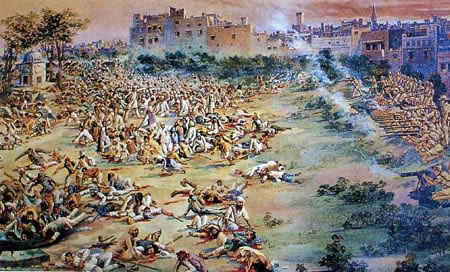Ideas Hub: A Historic Perspective on Contemporary British Muslim Fiction, by Hannah Kershaw
A Historic Perspective on Contemporary British Muslim Fiction
by Hannah Kershaw
Today’s British media outlets, particularly the tabloids, are saturated with claims that Muslims living in Britain have had a negative influence on society. Immigrant communities from traditionally Muslim regions in Asia and the Middle East has been targeted as potential enemies of ‘the West’, framed in popular discourse as a threat to supposedly intrinsic British values, such as democracy, gender equality, and freedom of speech. My current doctoral research aims to offer an alternative perspective to this damaging narrative through the study of contemporary British Muslim literature (loosely defined as authors who are writing in Britain and are from Muslim heritage, often with varying degrees of religiosity). Considering this exciting and growing body of literature as an alternative narrative allows us to consider how British Muslim writers, such as Leila Aboulela, Nadeem Aslam, Robin Yassin-Kassab, use an imaginative craft embedded in reality in order to challenge and re-imagine what it means to be both Muslim and British.
This area of scholarship is continuing to grow, with recent publications in this field including but not limited to Anshuman Mondal’s Islam and Controversy: The Politics of Free Speech after Rushdie (Palgrave, 2014) and Rehana Ahmed’s Writing British Muslims: Religion, Class and Multiculturalism (Manchester UP, 2015). However, my research specifically asks how these authors explore Muslims living in Britain through the use of history and cultural memory. Theories of memory and trauma are often used when researching literature and testimonials around the Holocaust, but I argue that using this approach can benefit us in two ways. Firstly, it can help us to understand how British Muslims authors place their and their characters’ identities within a postcolonial and global framework, and secondly, it allows us to strive towards an understanding of British identity as historically and inherently multi – not mono – cultural.

At this point, it helps to ask: is there really a meaningful relationship between literature and social reality? In considering literature as a form of aesthetic representation, it is clear that there are benefits to using it as a way to understand everyday political and social conflict. George Von der Muhll describes the act of reading literature as an activity that allows the reader to understand social conflict ‘from the inside out’, meaning we not only engage with a novel’s characters through empathy, but also through its construction of political and social conflict through dialogical relationships – or simple inter-character dialogue and action.
Salman Rushdie was particularly vocal about the potential of literature back in 1984, although after the furor of the publication of The Satanic Verses in 1988, his position has become somewhat more inward looking. In his essay ‘Outside the Whale’, Rushdie argues that it is wrong for authors not to wish to engage with contemporary politics, claiming that ‘works of art, even works of entertainment, do not come into being in a social and political vacuum’. However, it became apparent to Rushdie in the late 1980s during Ayatollah Khomeini’s fatwa, that both political and authorial intention does not always result in the desired response from the reader (or, in this case, non-readers too).
Much of the British Muslim fiction being produced today is of social and political importance because of the themes that are touched upon: the struggle to maintain the Muslim faith in Britain; everyday and structural forms of racism; the trauma of migration; a perpetual sense of non-belonging. However, let’s not forget the positives that some of these authors explore, namely the actualization of new relationships, new communities and places of worship, and new opportunities.


(Above: Depiction of the Amristar massacre)
One of the novels that I discuss is Nadeem Aslam’s 2004 Maps for Lost Lovers, which narrates the everyday lives of a South Asian family living in a relatively working-class and economically deprived unnamed northern town in England. The novel, which is framed around the supposed ‘honour killing’ of a young woman, considers how domestic structures and Pakistani traditions are disturbed and made problematic in a post-migration setting. Of particular interest is the novel’s analepsis to the 1919 Jallianwala Bagh massacre near Amritsar, when crowds of non-violent protesters were subject to random shootings by the British army. It was here that one of the novel’s protagonists, Shamas, remembers how his then-Hindu father was caught in the violence, became injured, lost his memory and lived as a Muslim for the rest of his life. This act of colonial violence is remembered and re-imagined throughout the novel, and is a crucial reminder of the impact of the British Raj on today’s clashes between white and South Asian communities. By weaving memories of the British Raj and the 1947 Partition of India into the present-day British narrative, Aslam employs a fictional but deeply historical narrative that acknowledges anti-Muslim sentiment as stemming from Britain’s long history of colonial rule and fear of the non-Christian, and the non-white.
Hannah Kershaw is a third-year PhD student and is co-supervised by the Department of Politics and the Department of English and Related Literature at the University of York. Her research project into British Muslim literature is funded by the ESRC WRDTC network ‘Reshaping Multiculturalism through Cultural Practices’, a highly interdisciplinary network supported by academics at York, Leeds and Sheffield.
She tweets @HCKershaw

